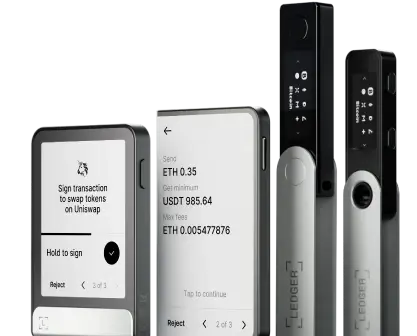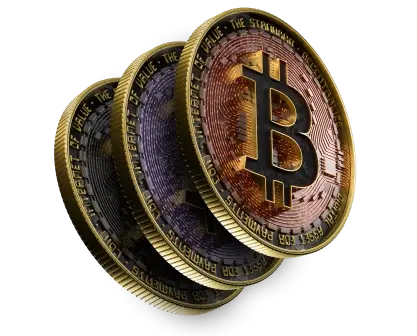Misc. | 12/17/2020
How to buy Bitcoin – the pocket guide to your next investment opportunity
The world is getting smaller and smaller, and it’s not because the continents are drifting towards each other. Just imagine a world without intermediaries, a world where money, securities, sensitive information, and any kind of asset can be exchanged in between parties without the middleman, in a secure manner, in a matter of seconds. Guess what? It’s already happening! If you’re still wondering about what we’re talking about, you guessed – it’s Bitcoin, and we’re going to help you learn how to buy Bitcoin as easy as 1-2-3.
The journey from 0 to Bitcoin owner
You might still be wondering what makes Bitcoin such a valuable asset although it’s intangible? [Dramatic pause] It’s all about utility – a cryptocurrency (like Bitcoin) and the blockchain behind it (the platform it runs on) performs a certain task that helps users exchange a form of value, without the middleman. Bitcoin, for example, helps people send money to each other.
Basically, you can buy Bitcoin for one of those reasons – you either want to invest in it or you want to trade money. And now comes the question you’ve been thinking about – how do you buy Bitcoin in the first place?
Enough chit-chatter! Let’s dip our toes into the pond!
1 – Register on an exchange
Before you can consider buying bitcoin you need to go to a “Bitcoin marketplace”. The most popular “marketplaces” are crypto exchanges. You can head to exchanges like Coinbase, Binance, or Coinify and create your account with your email address or whichever login options they feature.
Although the most popular option, crypto exchanges are not the only bitcoin marketplaces. Remember, there are a lot of cryptocurrency exchanges out there, each with their own different features and fee rates. Make sure to do your research before choosing one exchange over another.
2 – Validate your ID
After registering on your chosen exchange platform you will be prompted to present a form of identification – a national ID card, a passport or a driver’s license. Some exchanges will ask you for more or less verification documents, such as a bank statement.
Not that much of a hassle. All you need to do know is wait for the exchange to validate your ID submission and you’re good to buy.
3 – Payment Methods
You guessed it! You also need to input some form of payment methods in order to buy Bitcoin. You can buy Bitcoin with your credit card, a PayPal account, or wire transfers. Most of these payments are accepted by exchange platforms, along with other options, depending on the exchange.
4 – Choosing your wallet
The most important thing you need to consider is where you will store your Bitcoin. Bitcoin and any other cryptocurrencies are stored in wallets. It’s not the leather one in your pockets, but a digital or hardware counterpart that will hold your Bitcoin assets.
A wallet is easy to come by – you either use the one the exchange gives you, download a digital one, like Metamask, or you can buy a hardware Bitcoin wallet that offers enhanced security and ownership, like the Ledger Nano X.
When choosing a wallet you need to be aware that exchange wallets are vulnerable to hacks, as you don’t own the wallet per se, rather the exchange does. In contrast to them, digital wallets give you ownership over the wallet, yet still lack in security. The tightest security comes with using a hardware wallet that you can carry with you.
5 – Different ways of buying bitcoin
Crypto exchanges are not the only way to purchase Bitcoin. Besides the traditional cryptocurrency exchanges, you have other options for buying your Bitcoin.
For example, you can buy Bitcoin directly with Ledger and our partner Coinify. Using the Ledger hardware wallets in combination with the Ledger Live app, you can securely purchase your Bitcoin from Coinify via Ledger Live and deposit it straight into your Ledger hardware wallets.
The awesome advantage of buying crypto via Ledger is that you will always have full control & ownership over your assets, while your purchase is safeguarded in the most secure crypto-buying ecosystem. The Ledger Live app shows you the price of bitcoin in real-time, while also offering management tools for your crypto assets like receive, send, sell, and lend.
You can easily buy your Bitcoin by credit card or bank transfer and have Coinify securely send it to your wallet without any hassle or security risk.
What are the risks when buying Bitcoin?
There is no great reward without great risks. Or so the saying goes. When buying your bitcoin you need to be aware that there are risks associated with it, be it security or market risks.
It’s now time to take you through those risks so you’ll know how to protect yourself when buying and storing your bitcoin.
1 – Market volatility
What goes up must come down! As with any asset, its market value drops and grows depending on demand, scarcity and other events that influence it. When buying cryptocurrencies in general, not just bitcoin, you need to be aware that the market is HIGHLY volatile – think of a roller coaster ride and you’ll get a pretty good picture.
This means that the price of Bitcoin fluctuates quite rapidly and with great margins. It can go up pretty fast or it can drop down just as fast. The ideal way to get in front of the danger of market volatility is to do your research about how bitcoin prices fluctuate, why they fluctuate, and when they tend to do so.
2 – Public and private keys
This one might get a bit tricky but don’t worry – we’ve got the key for it!
Public and private keys are what you, as a Bitcoin owner, would use to transfer your value securely to the person who receives it on the other end and receive value, and vice versa.
Think of the public key as a virtual address where you can find Nina, to whom you want to send some Bitcoin. In order for the bitcoin to arrive securely and only Nina to receive it, your transaction can only be opened with the private key associated to the public one, which you guessed right – belongs to Nina alone, hence only she can open it. It works the same way around with your public/private keys when you receive Bitcoin from Nina.
Your private key is basically a string of digits and letters that represent an access to your wallet, where your Bitcoin is bought, received, and stored. You need to make sure that you keep it secure and out of reach in order to avoid thefts and hacks.
3 – Internet connection
This one is more or less common sense. You need to make sure your internet connection is secure when buying your bitcoin or trading cryptocurrencies.
We don’t recommend making Bitcoin purchases on public Wi-Fi in places like airports, train stations, coffee shops, restaurants, etc. Public networks are highly susceptible to hacks and you don’t want to see your investment seeping through your palms.
Buy your Bitcoin at home, where you have your own private connection, and better do it on a secure browser like Brave.
4 – Digital wallet vs. Hardware wallet
Earlier we were discussing crypto exchange wallets vs. digital wallets and that the former are more prone to hacking than the latter. Even with the better security, not even the digital wallets are safe from greedy clutches.
Think of your Bitcoin as the national gold reserve of Spain. Now imagine “El Professor” and his “Money Heist” gang as the hackers trying to nabb your digital gold. Your gold wouldn’t stand much of a chance with the security flaws of a digital wallet – those guys are quite crafty. Now let’s take a look at how a hardware wallet, a.k.a. cold wallet, works. First of all, a cold wallet is a physical, offline version that only works when connected to a computer or mobile device. Since it doesn’t exist in the digital space, it’s not susceptible to hacks, making it by nature extra-secure.
With a hardware wallet, you basically own your private key. When you couple that with a reliable app that works with your wallet, like Ledger Live, you create the most secure ecosystem for buying & storing Bitcoin, as well as other cryptocurrencies.
In conclusion
If you made it here, it means that you now have a pretty good idea about the bread and butter of buying Bitcoin. It’s not rocket science but you need to be careful with protecting your digital gold reserve. Make sure to get yourself a secure safe to prevent “El Professor” and his gang from nabbing your coins and never stop learning about the assets you want to invest in.





























